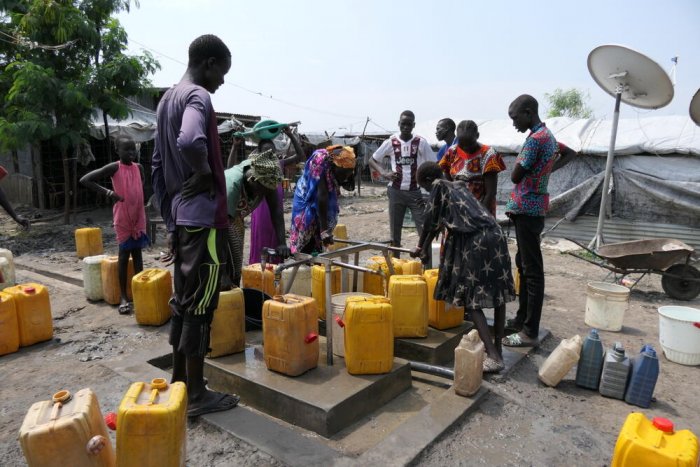
An alarming jump in the number of patients with hepatitis E and acute watery diarrhoea has been seen in the camp for internally displaced persons (IDP) in Bentiu, South Sudan. The situation is critical, with two deaths already registered within a month since the end of July, says Médecins Sans Frontières (MSF).
“We have repeatedly warned of the health risks of inadequate water and sanitation service provision in the Bentiu camp,” said Federica Franco, MSF country director. “A failure to address these issues, with agencies actually reducing their water and sanitation services over the past year, has now resulted in this avoidable situation.”
Since July, MSF teams have treated four times more patients with hepatitis E than in the previous months. Of 186 cases reported in 2021, over 60 per cent were recorded over six weeks between early July to mid-August. Amongst the patients who passed way, one was a pregnant woman, as the Ministry of Health called attention to on 15 August. Hepatitis E is a highly concerning disease for this group, as pregnant women are more likely to experience severe illness and the mortality rate can be as high as up to 30 per cent.
MSF teams have also witnessed an exponential growth in the number of people with acute watery diarrhoea. While we were treating an average of 230 patients per month throughout the year, we saw 1,454 in July – a 50 per cent rise in the number of patients seen in June. The most affected are children aged under five years.
“We don’t have water containers in our house,” says camp resident Nyaker Deng Bol. “Sometimes my children go to bed without showering because the one jerry can we have is not enough for showering the five of us. We just use it for drinking.”
A lack of soap and latrines, as well as open sewers, are among the poor hygiene issues contributing to the appalling situation for over 100,000 people who live in the camp. During a survey MSF teams conducted this month, less than 27 per cent of the sampled households could show a piece of soap while being interviewed in their shelters. Additionally, only around 13 per cent of people have access to hand washing points with water and soap close to the latrines.
Source: MSF







